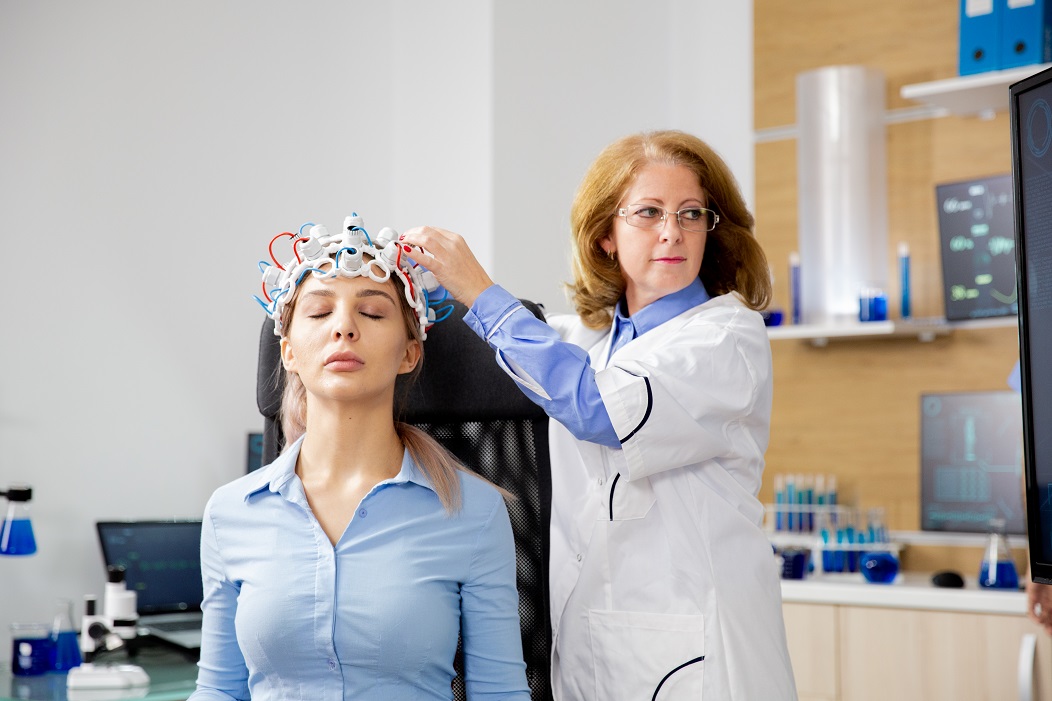Introduction
Sleep Study is a procedure that keeps track of body activities during sleep. Several sleep studies are based on unique methods to examine sleep disorders and their characteristics. These include
- Polysomnogram (PSG)
- Multiple Sleep Latency Test (MSLT)
- Split Night Study
- Maintenance of Wakefulness Test (MWT)
- CPAP Titration
A lot goes into our body and brain during sleep. Monitoring these activities during home sleep study enables a doctor to diagnose various sleep disorders, such as sleep apnea and restless legs, and suggest a solution.
What Does Sleep Study Measure?
A non-invasive medical test called a polysomnography, often known as a sleep study, tracks several physiological processes that occur while a person sleeps. With the help of this test, sleep problems like sleep apnea, narcolepsy, and insomnia can be diagnosed and evaluated. During a sleep study, sensors are positioned on the patient’s legs, chest, face, and scalp to track their heart rate, breathing patterns, muscle activity, brain activity, and eye movement. A sleep expert records and examines this data to assess the quantity and quality of sleep and to spot any unusual patterns or disruptions that might point to a sleep disorder.
Why Do I Need a Sleep Study?
Polysomnography, a type of sleep study, can identify sleep problems such as sleep apnea, insomnia, and restless leg syndrome. While you sleep, it involves keeping an eye on your breathing, heart rate, brain activity, eye movement, and other bodily functions. Your healthcare professional may use the findings to develop a specific treatment plan to enhance your sleep and general health. Your physical and mental health depends on obtaining a good night’s sleep, and a sleep study can reveal any problems preventing you from getting the restorative sleep you require.
Can a Sleep Study Detect Anxiety?
By detecting specific physiological changes linked to worry, a sleep study, known as a polysomnography, might indirectly detect anxiety. A sleep study measures several variables, including heart rate, muscular activity, brain waves, and breathing patterns. Anxious people may breathe more quickly and have elevated heart rates, which can interfere with sleep and lead to irregular sleep patterns. However, because so many other factors can cause sleep disturbances, a sleep study alone cannot conclusively diagnose anxiety. An accurate clinical evaluation and assessment by a mental health expert are required to diagnose anxiety.
What If I Can’t Sleep During a Sleep Study?
People often worry about the lack of sleep during sleep studies. Some individuals don’t experience any problems falling asleep. However, they find sleeping problematic during the test.
Falling asleep is necessary for the medical procedure. Such feelings can lead to anxiety, keeping you awake. If you are facing a problem, there is a need to offset this.
Avoid caffeine drinks and skip the coffee cup in the morning. Have an active day and engage in physical activities like exercise or walking. If you are aware of relaxation techniques, imply them as well.
Equipment For a Sleep Study
After you arrive at the medical center, the expert will attach small sensors to your head and body. The wires around your head are combined properly to ensure you can move around while falling asleep.
Your sleep technician will wrap the elastic belts around your chest to measure your breathing pattern. Furthermore, a clip over your finger will track down the oxygen levels in your bloodstream.
In case your medical officer suspects obstructive sleep apnea. He might ask you to wear a positive airway pressure machine in the night’s second half. You will be advised to use a breathing mask while sleeping. The technician will adjust the monitor and screen to check whether such an arrangement improves your sleep.
Some individuals are scared of these arrangements and prefer a home sleep study. A process that refers to recording a specific body movement in the comfort of your home. However, a wise approach is to ask your healthcare expert to perform this test in a fully facilitated lab for accurate results.
Is a Sleep Study Painful?
A sleep study is not uncomfortable. During a sleep study, known as polysomnography, sensors are placed in your body to track your sleeping habits and numerous biological systems. These sensors could include a sensor to track your heart rate and respiration and electrodes implanted on your legs, face, and scalp to assess muscle activity, eye movement, and brain waves. Although it might be uncomfortable, attaching the sensors is not painful. In actuality, a lot of people find the experience to be both calming and educational.
How Do You Feel After a Sleep Study?
Nevertheless, the type of study and a person’s preferences can affect how uncomfortable someone is during a sleep study. Some people might be happy that the study is over and that they have hopefully learned more about any sleep-related problems they may have been having. Others can have apprehension or unease in relation to the findings or the possibility of adjusting their way of life in light of them. It’s crucial to follow up with a healthcare professional to review the findings and determine what needs to be done next.
Conclusion
The information gathered from a sleep study can help healthcare professionals to identify underlying causes of sleep disorders such as sleep apnea, restless leg syndrome, and narcolepsy. This information can then be used to develop an appropriate treatment plan.
Sleep studies have revolutionized our understanding of sleep and its impact on our health. They have led to the development of effective treatments for sleep disorders, improving the quality of life for millions of people worldwide.
In conclusion, sleep studies are a valuable tool for diagnosing and treating sleep disorders, and they have significantly impacted our understanding of the importance of sleep for overall health and well-being.


